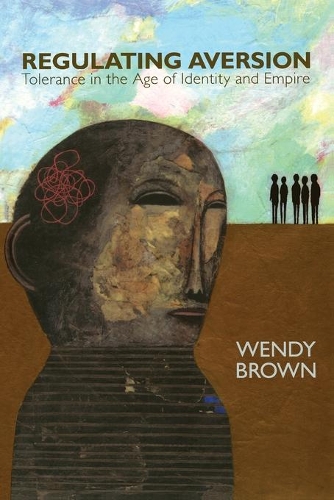
Regulating Aversion: Tolerance in the Age of Identity and Empire
(Paperback)
Publishing Details
Regulating Aversion: Tolerance in the Age of Identity and Empire
By (Author) Wendy Brown
Princeton University Press
Princeton University Press
7th April 2008
United States
Classifications
Professional and Scholarly
Non Fiction
179.9
Physical Properties
Paperback
288
Width 152mm, Height 235mm
397g
Description
Tolerance is generally regarded as an unqualified achievement of the modern West. Emerging in early modern Europe to defuse violent religious conflict and reduce persecution, tolerance today is hailed as a key to decreasing conflict across a wide range of other dividing lines-- cultural, racial, ethnic, and sexual. But, as political theorist Wendy Brown argues in Regulating Aversion, tolerance also has dark and troubling undercurrents. Dislike, disapproval, and regulation lurk at the heart of tolerance. To tolerate is not to affirm but to conditionally allow what is unwanted or deviant. And, although presented as an alternative to violence, tolerance can play a part in justifying violence--dramatically so in the war in Iraq and the War on Terror. Wielded, especially since 9/11, as a way of distinguishing a civilized West from a barbaric Islam, tolerance is paradoxically underwriting Western imperialism. Brown's analysis of the history and contemporary life of tolerance reveals it in a startlingly unfamiliar guise. Heavy with norms and consolidating the dominance of the powerful, tolerance sustains the abjection of the tolerated and equates the intolerant with the barbaric. Examining the operation of tolerance in contexts as different as the War on Terror, campaigns for gay rights, and the Los Angeles Museum of Tolerance, Brown traces the operation of tolerance in contemporary struggles over identity, citizenship, and civilization.
Reviews
"The triumph of toleration as the central liberal value, and the attendant inability of liberals to see the dark side of their favorite virtue, is the subject of Wendy Brown's insightful and illuminating new book... I find the analysis trenchant and the critique persuasive."--Stanley Fish, Chronicle of Higher Education "This is a remarkable book ... made attractive by its passion, the lucidity of its negative critique, and its intelligence."--John Hall, Social Forces "Wendy Brown has produced a richly textured and timely analysis of some of the darker elements lurking beneath the tolerance discourse of western liberalism."--Vincent Geoghegan, American Review of Politics "[This is a] bold, erudite, and timely study."--Ely Aharonson, Criminal Law and Philosophy "Regulating Aversion is a forceful and, in many places, convincing attempt to account for the contemporary relevance and meanings of tolerance within liberalism in the West, and in the United States in particular."--Emily Grabham, Feminist Legal Studies "The strength of Brown's book is her trenchant deconstructions of the universalizing pretenses of tolerance specifically and liberal discourse more generally. Brown's intervention successfully jars tolerance loose from the hallowed transhistorical ground on which it usually rests."--C. Michael Hurst, Cultural Critique
Author Bio
Wendy Brown is professor of political science at the University of California, Berkeley, where she is also a member of the Critical Theory Faculty. Her books include "Edgework: Essays on Knowledge and Politics, Politics Out of History", and "States of Injury: Power and Freedom in Late Modernity" (all Princeton).
